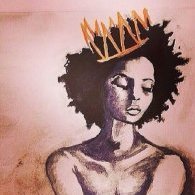Search the Community
Showing results for tags 'lesbiannovels'.
-
Indeed, I wasn’t quite sure what to expect when I saved the tweet that recommended Sara Collins’ debut novel, but as soon as I learned that the protagonist was a same-sex loving Black woman in prison for killing her former slave-owning employers, I knew that I had to read it. A caveat: I’m still pondering over this novel’s inclusion on this website, but given the decidedly same-sex loving protagonist, I’ve decided to share my thoughts on it and let you decide. Keep in mind that using “lesbian” to describe female same-sex intimacies was first recorded in the late 19th century, and wasn’t used widely until well after that. The novel opens in 1826 with Frannie Langton about to stand trial in London’s Old Bailey for the murder of her former employers. She insists that she is innocent, but cannot remember anything about the murders. Frannie was their servant, a “gift” to George and Marguerite Benham from her former slave owners John and Bella Langton. After a precarious and somewhat mysterious existence on a plantation in the West Indies, specifically Jamaica, Frannie travels to London with her former owner John Langton, unsure what to make of her status as a newly free person. Confessions travels back and forth in time, meandering through Frannie’s young life on the plantation to her life in London and back again. Offered the opportunity to “give me something I can save your neck with,” Frannie pens her own story, sharing bits and pieces of her life as a slave and free woman. We learn that she serves as Langton’s attendant and scribe as he commits atrocities on the dead and the living, all in search of evidence that would prove once and for all that Black people are biologically inferior to whites, supporting the need to preserve the “peculiar institution” of chattel slavery. While this sub-plot of the novel is relevant given the setting, Collins’ attention to technical and scientific detail tends to slow down the pacing of the novel. These words, uttered by Phibbah, Frannie’s caretaker while still on the plantation and a reference to her first mistress, Miss Bella, would come back to haunt Frannie after her arrival in London. One of the more compelling plot lines in the novel is the “love” story between Frannie and her employer’s wife, Marguerite Benham. According to Frannie: As modern day readers, we know what Frannie may not when she returns, even encourages her mistress’s affections: this love affair is not going to end well for either of them. Frannie experiences uncommon highs as well as devastating lows during her time in London, and while I won’t spoil the ending by sharing any more details, I will note that the ending feels rushed compared to other parts of the novel. All in all, Collins’ neo-slave narrative/gothic novel is a good read for anyone interested in those genres, as well as lovers of literary fiction. It’s also an unconventional take on an interracial female same-sex love story, although it is not marketed as such. The dynamics of power, race, and sexuality all obtain in interesting ways, and while I’ve not written much about that here, I have a feeling I might have more to say about this novel later on. Source
- 1 reply
-
- 1
-

-
- lesbiannovels
- naijalez
- (and 4 more)
